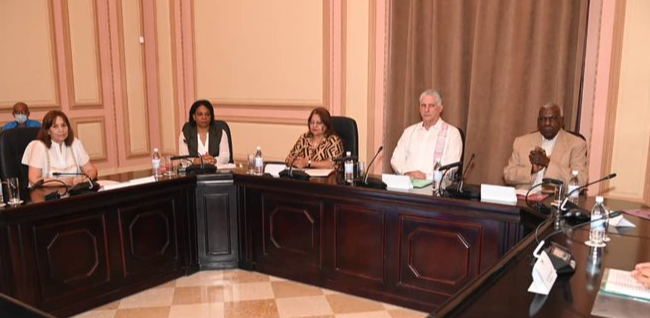The First Secretary of the Central Committee of the Communist Party of Cuba and President of the Republic, Miguel Díaz-Canel described the web portal of the Observatory on Gender Equality, presented Thursday in Havana, as a robust, modern tool, with excellent visuals and appropriate communicative codes.
“The site will allow reaching both young people and other sectors of the population, to show results in terms of the implementation of public policies that contribute to eradicate the gaps in the protection of women, adolescents and children,” said the president.
The inaugural ceremony took place at the headquarters of the National Assembly of People’s Power (Parliament).
Díaz-Canel was accompanied by the president of the legislative body, Esteban Lazo, the secretary general of the Federation of Cuban Women, Teresa Amarrelle, Deputy Prime Minister Inés María Chapman and representatives of the country’s institutions and international organizations.
The head of state urged to deploy training actions for the effective use of this tool in the whole society, so that its actors at the community level raise the quality of the analysis in each decision to be adopted.
For her part, Teresa Amarrelle assured that the portal is the result of research and systematic exchange with various academic entities, organizations and institutions that helped to identify gender inequalities that limited the development of women, as well as the implementation of public policies that allowed progress in terms of rights, equality, justice and social equity.
The initiative is part of the actions of the National Program for the Advancement of Women, approved by the Council of Ministers in October 2021, which was put into effect by Presidential Decree 198/2021 of March 8 of that year in the Official Gazette.
The program promotes actions to achieve greater comprehensiveness and effectiveness in the prevention and elimination of manifestations of discrimination against women, and strengthens the capacity of public servants to incorporate the gender approach in the implementation of policies, programs and social services.


